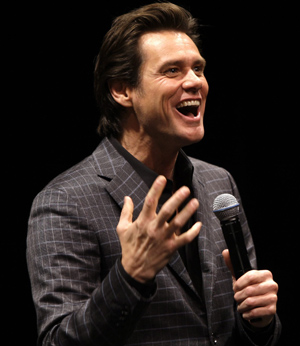
Over the last 18 years I’ve been entrenched in the world of entrepreneurship. I’ve worked with great entrepreneurs, I’ve studied the greatest of them all, and I’ve lived the life of entrepreneurship.
I’ve learned that the best of the entrepreneurial breed have a distinct set of instincts. These instincts are what enable them to create a functioning organization from just that small spark of idea. It’s an amazing and miraculous process to witness and experience.
“Entrepreneurship” isn’t a label reserved only for the builders of businesses. It’s an accurate label for someone who leads the establishment of any organization. It’s a label for the builder of any successful movement, cause, project, team, or group; large or small.
Like a great athlete or musician with natural instincts, some people are born with amazing and obvious entrepreneurial instincts. Others…not so much. But like sports, music, or anything else, one can choose to learn through study and practice, the instincts of entrepreneurship. With persistence anyone can become a successful builder of an organization, movement, or cause.
There are few things so satisfying as establishing an organization that produces something of worth, and more important, creates an environment for other people to serve in that cause.
During the last few years I’ve been speaking and teaching about, “The 11 Killer Instincts of Entrepreneurship.” These are the instincts shared by the family of common and famous entrepreneurs from around the world and from the annals of history.
The true leaders and top performers in every company, profession, industry, or charity possess a majority of these instincts. How do you measure up?
1. The Solution Instinct: This is about problem-solving ideas and always seeing them. It’s about seeing new opportunities while traveling, shopping, or working. Seeing problems and potential solutions to those problems is at the heart of every valuable idea. Creativity is a dominant force in this process.
2. The Detective Instinct: This is about fact-finding and due-diligence. It’s about letting go of the emotion and excitement of a good idea and taking a venture-capitalist approach. This instinct is something that keeps one constantly assessing how an organizational model will work, scale, and succeed…without personal bias.
3. The Great Communicator Instinct: This is about connecting and continually selling the message. It’s a constant awareness that every point of communication matters. Whether communicating with partners, investors, vendors, employees, or competitors; every communication is an opportunity to strengthen your mission and be the leader of your cause.
4. The Youthful Genius Instinct: This is about doing what you love. When we were young, we dreamed big dreams and showed glimmers of what we might become. Tapping into the expectation and excitement of our youth is central to successful entrepreneurship.
5. The Entrepreneurial Heritage Instinct: This is about how our heritage can reveal our deeper passions and purpose. Exploring the accomplishments and failures of your roots can help one tap into opportunity, passion, and purpose. There is a reason why many families pass along entrepreneurial success and create “dynasties” of their own.
6. The Risk-Taker Instinct: This is about going out on a ledge. No risk, no reward. It’s the fundamental factor for crossing the chasm of an idea to an organization. Finding the calculated balance of risk and opportunity is key.
7. The Work-Horse Instinct: This is about paying the price. Doing whatever it takes. Those “overnight successes” usually require at least 5 years of hard work and incredible sacrifice to get there.
8. The Thick-Skinned Instinct: This is about being tough. Resilience, optimism and a positive mindset reside in every great entrepreneur. What is the fundamental key to success in attaining goals? To never give up.
9. The Flexibility Instinct: This is about being willing to change. Emotion and pride must be removed from the process while building an organization and paying attention to the best route to take. The right path naturally eventuates; if you’re able to recognize it and willing to take it.
10. The Human Instinct: This is about people. Attracting the best people is more important than the idea itself. Treating people well, leading well, and serving with care is a fundamental reason why anything worthwhile should be built in the first place.
11. The Knowledge-Quest Instinct: This is about constantly learning. Reading, thinking, listening, observing, absorbing, and applying is a hallmark instinct of a great entrepreneur.
 My son Luke (11) and his cousin Logan (10) have the entrepreneurial bug.
My son Luke (11) and his cousin Logan (10) have the entrepreneurial bug.





